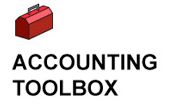Accounting is built upon a common set of principles that are consistently applied. In the United States and for the private and not-for-profit sector, we refer to these as Generally Accepted Accounting Principles (GAAP). GAAP standards go through a rigorous review and discussion process before they are incorporated into general accounting practice. Auditors draw on the Statements of Auditing Standards promulgated by the American Institute of Certified Public Accountants (AICPA). The Institute of Management Accountants also issues Statements on Management Accounting.
The Financial Accounting Standards Board (FASB):
Since 1973, the Financial Accounting Standards Board (FASB) has served as the organization responsible for developing the standards that cover financial reporting for non-governmental agencies. Their role is to establish an independent framework that considers stakeholders, the accounting industry, and oversight in developing their standards. Our Standards-Setting Process describes how FASB standards are developed.
Financial Accounting Standards Advisory Council (FASAC)
Advises the FASB and serves as both a source for new development and as a sounding board for work in progress.
FASB Technical Plan and Project Updates
Includes a list of current projects. A review of ongoing projects and research areas will keep you in touch with future industry changes.
FASB Accounting Standards Codification
Offers access to the accounting standards.
UMUC does have access to FASB standards; please contact your professor for the access information. Students should also consider signing up for free access as a key professional resource for your future.
American Institute of Certified Public Accounting Statement of Auditing Standards:
The American Institute of Certified Public Accountants (AICPA) is the home of the Auditing Standards Board (ASB).
Statements on Auditing Standards (SAS) provide auditors guidance in planning, conducting, and reporting audit results. While it is the responsibility of the auditor to recognize which pronouncements are applicable to a specific audit, an accounting student should become familiar with the basic audit pronouncements.
Exposure Drafts
Much as FASB updates its regulations, the AICPA also updates auditing standards. Reading about current exposure drafts and research areas can provide insight into current and future auditing issues.
Financial Reporting and Related Organizations:
All industries and professions are concerned with fraud, ethics, and corporate social responsibility (CSR). Specific resources include websites such as:
The Association of Certified Fraud Examiners
We cannot prevent all fraud, but we do seek to detect and deter it. Additionally, in a global reporting framework for corporate social responsibility, you may want to research materials on the Internet and find websites from major public accounting firms.
You might also look at the websites for the major public accounting firms, such as KPMG, PriceWaterhouse Coopers / PwC, Ernst and Young, and Deloitte. The major public accounting firms are important sources.
Global Reporting Initiative (GRI) also relates to Corporate Social Responsibility and International Standards.
When considering the federal government, international governments, and not-for-profit organizations, your research may include websites such as:
The Association of Government Accountants (AGA) provides resource web links. Members of this group represent state, local, and federal government as well as contractors and not-for-profit organizations. AGA also refers to their mission of Advancing Government Accountability.
Federal Accounting Standards Advisory Board
OCEG, Open Compliance & Ethics Group
Governance, Risk, and Compliance (GRC) is a key process in accounting; important information and tools for these issues is available for free from this nonprofit organization. Registration is required.
International Federation of Accountants
The Institute of Management Accountants periodically issues statements of management accounting providing guidance to corporate accountants.
Accounting, Auditing, and Internal Control Resources:
Introduction to Financial Accounting US Edition by David Annand and Adapted by Teresa Thompson.
Accounting Principles: A Business Perspective
www.principlesofaccounting.com provides additional resources for the students to review, study, and practice what they've learned through explanations, videos, and practice problems.
Rutgers Accounting Digital Library provides accounting resources and practice activities to students and the general public
Rutgers Accounting Web links to faculty-created videos, presenting topics and accounting practices in a variety of accounting courses offered at Rutgers University
A five-page summary of cost and managerial accounting key concepts
Cost and Managerial Accounting Glossary
Capital budget and the Present value Tables
This web site provides a 14 chapter cost accounting textbook and self-check multiple choice questions at the end of each chapter. http://maaw.info/MAAWTextbookMain.htm
Visit this link to access IFRS information http://www.ifrs.org/About-us/Pages/IFRS-Foundation-and-IASB.aspx
Visit this link to learn more about IFRS. Deloitte is a key stakeholder in IFRS information. http://www.iasplus.com/en/tag-types/global/publication-series/ifrs-in-your-pocket
Access this link for a brief 10 question quiz about IFRS: http://www.ifrs.org/
Visit the web page, https://www.coso.org/Pages/ic.aspx to explore resources related to COSO and the 2013 Internal Control - Integrated Framework.
Access the web page https://www.coso.org/Pages/erm.aspx to review resources related to COSO and the 2017 Enterprise Risk Management Framework.
